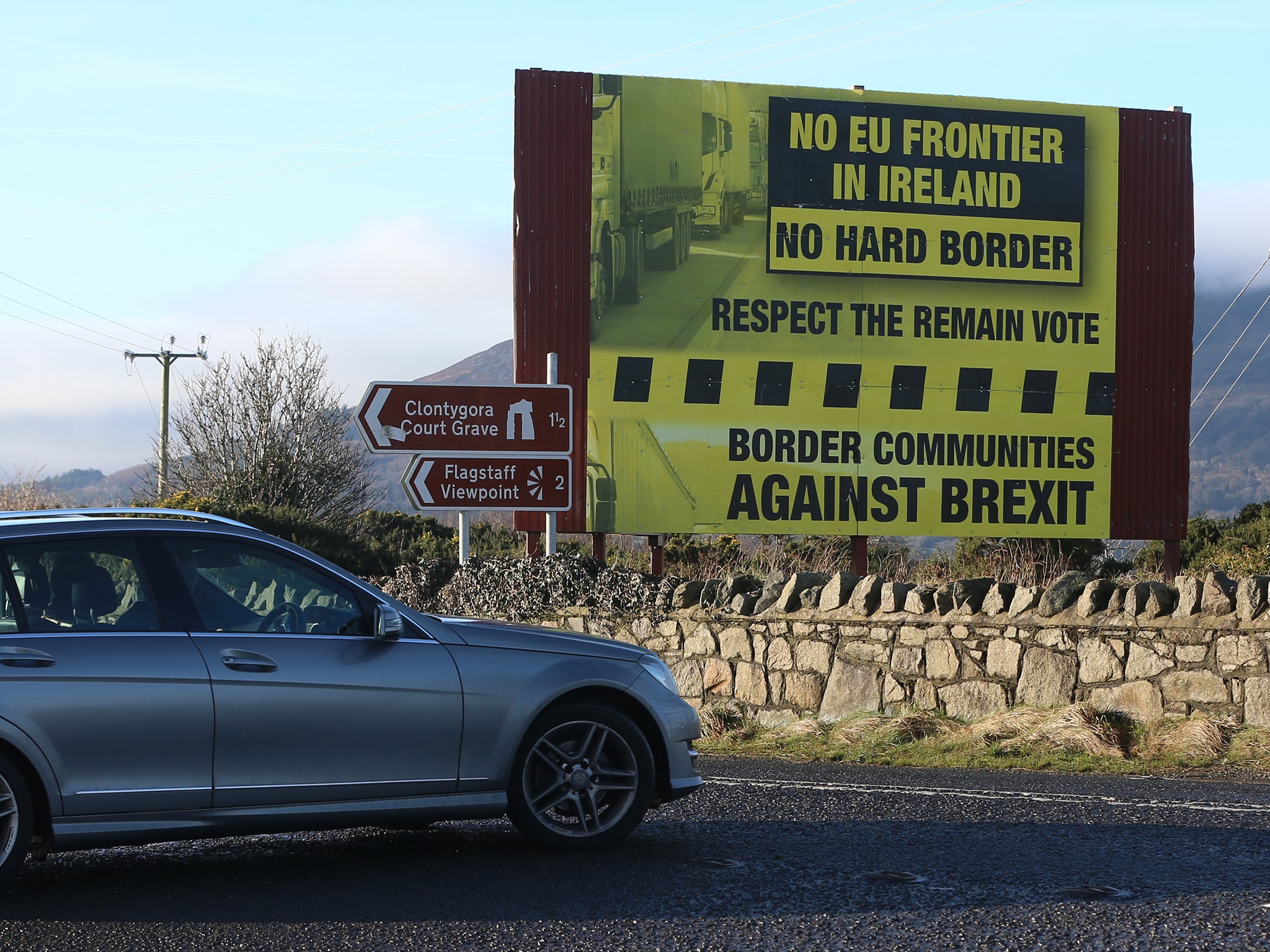Brexit: Irish border bungling by government ‘plays into the hands’ of terrorists, warns former police chief
'The political consequences of this will play into the hands of those who are still determined to destroy the relative peace that we have enjoyed'

Your support helps us to tell the story
From reproductive rights to climate change to Big Tech, The Independent is on the ground when the story is developing. Whether it's investigating the financials of Elon Musk's pro-Trump PAC or producing our latest documentary, 'The A Word', which shines a light on the American women fighting for reproductive rights, we know how important it is to parse out the facts from the messaging.
At such a critical moment in US history, we need reporters on the ground. Your donation allows us to keep sending journalists to speak to both sides of the story.
The Independent is trusted by Americans across the entire political spectrum. And unlike many other quality news outlets, we choose not to lock Americans out of our reporting and analysis with paywalls. We believe quality journalism should be available to everyone, paid for by those who can afford it.
Your support makes all the difference.A former Northern Ireland police chief has warned the Government’s bungling of the controversy over the Irish border after Brexit will “play into the hands” of terrorists.
Sir Hugh Orde attacked ministers’ handling of the issue as “unforgivable and inept” – dismissing their claims that no border controls with the Republic will be necessary.
Instead, the chief constable of the Police Service of Northern Ireland until 2009, said the UK leaving the EU would “inevitably” require border posts.
“The political consequences of this will play into the hands of those who are still determined to destroy the relative peace that we have enjoyed through close co-operation and effective policing since 1998 and the Good Friday agreement,” Sir Hugh said.
He backed Neale Richmond, an Irish MP who warned this week that such controls “would be a target for dissident paramilitaries”.
Sir Hugh pointed out: “They provide an ideal, static and predictable target that prevents free movement.”
And he added: “After Brexit, the police are likely to lose many of the critical powers they currently hold - the European arrest warrant, joint investigation teams and direct access to intelligence systems spring to mind.”
In a letter published in The Times, he wrote: “There appears to have been absolutely no planning for the foreseeable and inevitable complexity of this critical issue. This is unforgivable and inept.”
The attack comes after the Irish border emerged as the biggest obstacle to a breakthrough in the Brexit negotiations at a crucial EU summit next month.
The Irish Government has threatened to block the talks moving onto future trade and hoped-for transitional deal, unless London can guarantee there will be no new hard land border.
The EU has backed Dublin’s view that, to achieve that, Northern Ireland must also remain part of the EU customs union – something London has categorically ruled out, at least long term.
Previously, Brussels has dismissed the UK’s proposals to use untested new technology to police a light-touch Irish border as “magical thinking”.
Dublin is demanding that the UK preserve about 140 EU regulations, covering everything from customs and agriculture to health services, to ensure an open border with Northern Ireland.
But that would mean London either accepting the rules for the whole of Britain or granting special status to Northern Ireland, weakening the integrity of the UK – which ministers have rejected.
With agreement close on the UK’s so-called “divorce Bill”, No 10 knows it must go further on the Irish border issue to move the exit talks on before Christmas.
It hopes that a toughened commitment to avoiding a hard border will be enough to satisfy the EU that “sufficient progress’ has been made, even without a fully-worked out solution.
But Simon Coveney, Ireland’s foreign affairs minister, said this week that Dublin believes it has the EU’s full backing for its stance, saying: “We don’t need to use a veto because we have complete solidarity on this issue.
“It is clear to us that if there is not progress on the Irish border, we will not be moving on to phase two in December and that was reinforced to me as late as last Friday by very senior EU leaders.”
Join our commenting forum
Join thought-provoking conversations, follow other Independent readers and see their replies
Comments